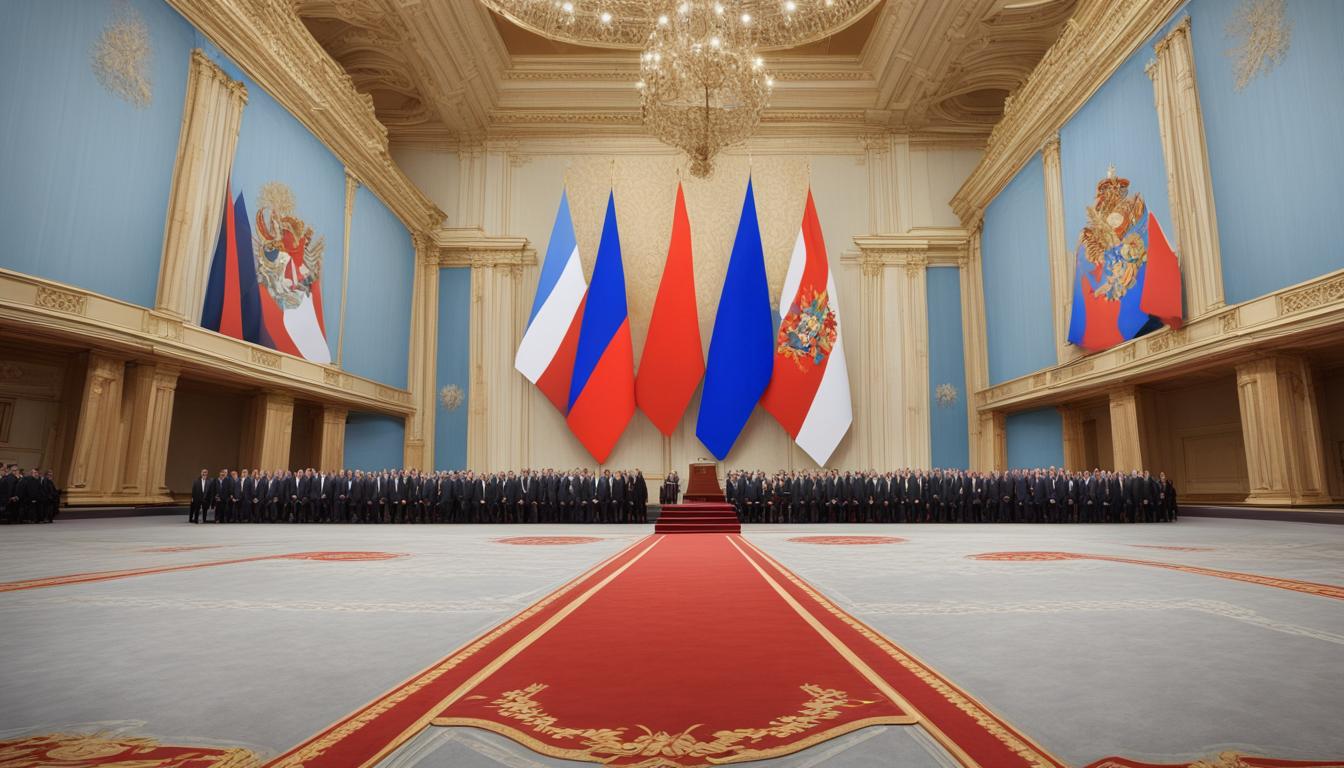Russian President Vladimir Putin begins his fifth term facing international scrutiny and allegations of intimidation and geopolitical aggressions, especially towards Ukraine and former territories.
Russian President Vladimir Putin has been inaugurated for a fifth term following a contested election and amidst international scrutiny of his leadership style and political tactics. The ceremony, missing representatives from the UK, US, and most European countries, marked the start of a term that could extend Putin’s rule to 30 years. During his speech, Putin affirmed his commitment to defending Russia’s national interests, particularly in light of the conflict in Ukraine, which has seen significant casualties.
Putin’s administration has faced wide-ranging criticism for its treatment of political dissenters, including the late Alexei Navalny and his associates, raising international concerns. Navalny’s death in custody under unclear circumstances has particularly drawn attention to the methods employed by the Kremlin to manage opposition.
Further complicating Putin’s international relations are allegations of unsettling behaviors during diplomatic engagements. Notably, Putin was said to have used knowledge of former German Chancellor Angela Merkel’s fear of dogs to bring one to a meeting, aiming to intimidate her. Another reported incident involved a graphic display during a hunting trip with former Italian Prime Minister Silvio Berlusconi in 2013, where Putin allegedly presented Berlusconi with a deer’s heart, which led to Berlusconi vomiting.
Amid growing tensions, Russia has also voiced aggressive geopolitical ambitions, with Kremlin figures expressing desires to expand Russian influence into former territories and EU countries. Recent statements have indicated a particular focus on Finland, which has historically resisted Russian control and recently joined NATO.
As Putin enters another term, these events highlight the complex and often contentious nature of his extended tenure, impacting both domestic politics and international relations.













